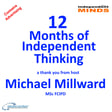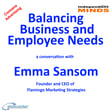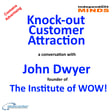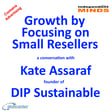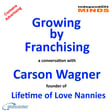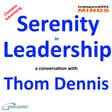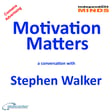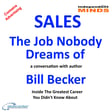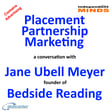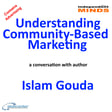
Retirement Planning as Talent Retention – a conversation with David Alemian
David Alemian is known for his innovative talent retention solutions that are a win-win for employers and their skilled employees.
In this episode of the Abeceder podcast The Independent Minds David explains to host Michael Millward his ideas for a Supplementary Employee Retirement Plan (SERP).
Life is getting increasingly expensive, which makes it more difficult to save for retirement.
People change jobs to increase their income. That results in several small pension pots.
David describes how the SERP concept provides both employers and employees with a long-term perspective of both employment and retirement. He explains how this can result in increased retention of talented employees.
The Independent Minds is made on Zencastr.
Zencastr is the all-in-one podcasting platform, on which you can create your podcast in one place and then distribute it to the major platforms.
Zencastr really does make creating content so easy.
If you would like to try podcasting using Zencastr visit zencastr.com/pricing and use our offer code ABECEDER.
Find out more about both Michael Millward and David Alemian at Abeceder.co.uk
Travel
David is based in Oceanside California, a very beautiful part of the world. If I ever get to visit I will make my travel arrangements with The Ultimate Travel Club, because as a member I can access trade prices for flights, hotels and holidays. You can also become a member at a discounted price by using my offer code ABEC79 when you join-up.
Proactive Positive Ageing.
David and Michael discuss the importance of maintaining good health in retirement.
It is always a good idea to know the risks early so that you can take appropriate actions to maintain good health, that is why we recommend The Annual Health Test from York Test.
York Test provides an Annual Health Test. An experienced phlebotomist will complete a full blood draw at your home or workplace. Hospital standard tests covering 39 different health markers are carried out in a UKAS-accredited and CQC-compliant laboratory.
A Personal Wellness Hub gives access your easy-to-understand results and guidance to help you make effective lifestyle changes anytime via your secure, personal Wellness Hub account.
Use this discount code ABECEDER2.
Three the network
If you are listening to The Independent Minds on your smart phone, you may like to know that Three has the UK’s Fastest 5G Network with Unlimited Data, so listening on Three means you can wave goodbye to buffering.
Visit Three for information about business and personal telecom solutions from Three, and the special offers available when you quote my referral code WPFNUQHU.
Being a Guest
If you would like to be a guest on The Independent Minds, please contact using the link at Abeceder.co.uk.
We recommend that potential guests take one of the podcasting guest training programmes available from Work Place Learning Centre.
We appreciate every like, download, and subscriber.
Thank you for listening.
